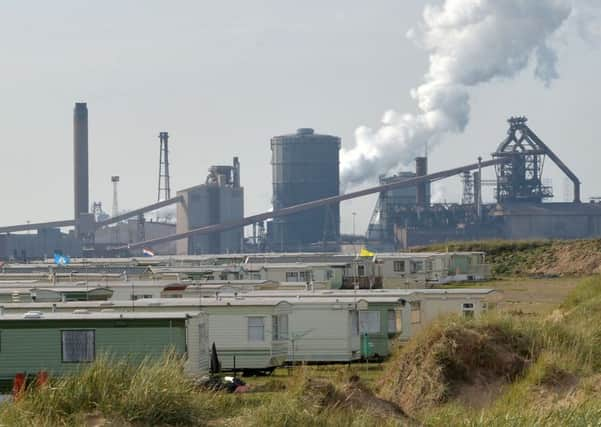Jack Montgomery: EU has condemned British steel industry to rust


Many factors have contributed to the crisis, but the UK Steel Summit in Sheffield last October named the three key problems as being high energy costs, China dumping steel on the export market below the cost of production and restrictions on state aid.
Coverage of these problems has unfortunately been quite superficial, with the media and opposition politicians contenting themselves with boilerplate demands for the Government to “do more”. This is no use at all, as none of these problems can be properly addressed while we remain wrapped up in the Brussels straitjacket.
Advertisement
Hide AdAdvertisement
Hide AdHigh energy costs are a logical result of an energy policy the EU’s own Industry Commissioner has described as being responsible for “a systemic industrial massacre”. This policy has hit industries such as aluminium smelting as well as steel, with all but one smelter in the UK having shut down and owners laying the blame squarely at Brussels’ door.
Decimating our workforce does not even have the fringe benefit of helping us achieve our long-term environmental goals, since it just moves production to countries where industry is dirtier.
Chinese dumping, meanwhile, should be actionable at the World Trade Organisation. It’s against the rules to sell heavily-subsidised goods below the cost of production on foreign markets. But here again we are restrained by the hand of Brussels, which insists on total control over trade policy.
EU supporters like to tell us that being part of a giant bloc should give us more “clout” to solve this sort of problem, but unfortunately the EU is not just disinclined to take serious action. It is actively mulling “Market Economy Status” for China, which will, according to the Economic Policy Institute, put “between 1.7 million and 3.5 million EU jobs at risk, by curbing the ability to impose tariffs on dumped goods”.
Advertisement
Hide AdAdvertisement
Hide AdLastly, we come to restrictions on state aid. Government assistance might not have been necessary in the first place without the previous two issues, but it certainly is now. Anna Soubry, the UK Minister for Small Business, Industry and Enterprise, has blamed “extremely strict” EU rules for the Government’s failure to provide an adequate level of support, complaining that “our hands are tied”. This is simply not acceptable.
In Scotland, First Minister Nicola Sturgeon has said she “will do all in my power to save our steel plants” and that “no stone will be left unturned”, but instead of tackling the damaging role of the EU head on she has had her Business Secretary concentrate on only on trying to secure a role in negotiating with Brussels. How can it be that a party notionally concerned with national independence does not raise the question of why it is necessary to ask the EU for permission to act in the first place?
Likewise, it was incredible to see the Welsh First Minister Carwyn Jones tweeting just before the latest round of devastating job cuts at Port Talbot that that the problems faced by steel workers have “nothing to do with” the EU. Could EU apologists have their heads buried any deeper in the sand?
The latest development is the news that big contracts to build ships and armoured vehicles for the armed forces may well end up going abroad, with tens of millions of pounds already having been awarded to Swedish steel firms. Sheffield Forgemasters might have been hiring new workers rather than laying them off if these contracts had been awarded to British firms – but showing preferential treatment is disallowed under EU rules.
Advertisement
Hide AdAdvertisement
Hide AdIt’s perfectly clear that we need to be able to amend our energy strategy to take the needs of energy-intensive industries into account. We need to have the freedom of action which will allow us to take robust action against dumping at the WTO. We need to be able to provide strategic aid to what is a strategic industry, without needing to waste precious time requesting permission from faceless officials overseas.
None of this is possible while the European elephant in the room remains studiously ignored. It’s time for the commentators, trade unionists and politicians to get serious and grab it by the tusks.
Jack Montgomery is an ambassador for the Leave.EU campaign.